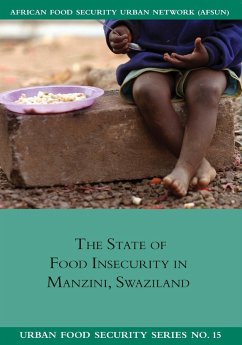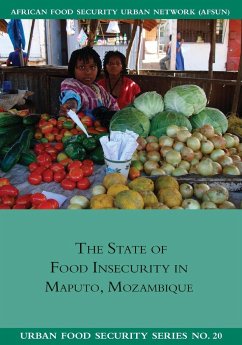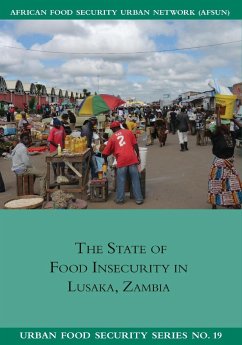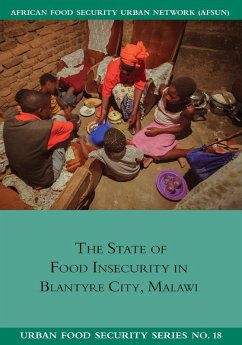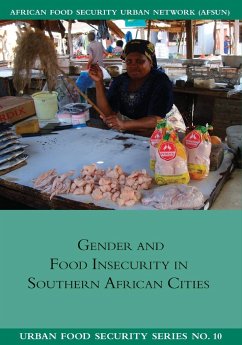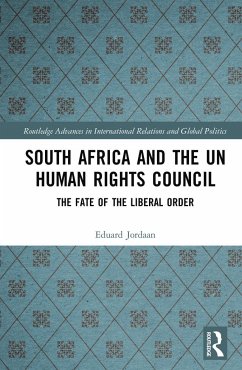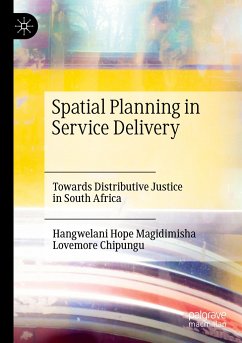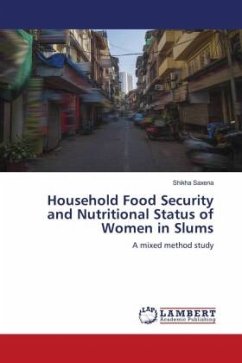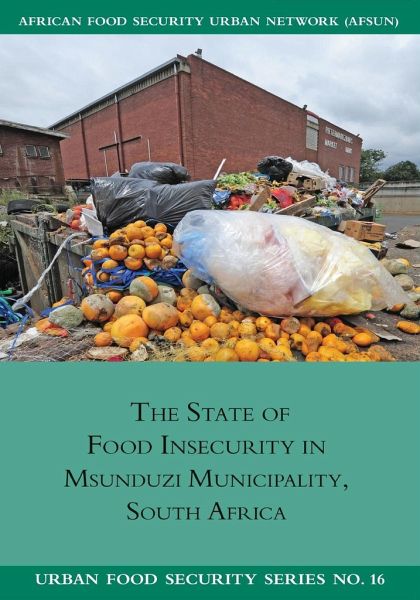
The State of Food Insecurity in Msunduzi Municipality, South Africa
Versandkostenfrei!
Versandfertig in 1-2 Wochen
29,99 €
inkl. MwSt.

PAYBACK Punkte
15 °P sammeln!
There is plenty of food in Msunduzi, in South Africa's KwaZulu-Natal province, but the urban poor regularly go hungry. This study of Msunduzi's food security situation formed part of AFSUN's baseline survey of eleven Southern African cities. The survey results show that the urban poor in Msunduzi are significantly worse off than their counterparts in Cape Town and Johannesburg. A third of the households reported that they sometimes or often have no food to eat of any kind. Household size did not make a great deal of difference to levels of insecurity but female-headed households are more food ...
There is plenty of food in Msunduzi, in South Africa's KwaZulu-Natal province, but the urban poor regularly go hungry. This study of Msunduzi's food security situation formed part of AFSUN's baseline survey of eleven Southern African cities. The survey results show that the urban poor in Msunduzi are significantly worse off than their counterparts in Cape Town and Johannesburg. A third of the households reported that they sometimes or often have no food to eat of any kind. Household size did not make a great deal of difference to levels of insecurity but female-headed households are more food insecure than male-headed households. Msunduzi is a classic case study of a city whose food supply system is dominated by modern supermarket supply chains. The informal food economy is relatively small, urban agriculture is not especially significant in the city and informal rural-urban food transfers are lower than in many other cities surveyed. In this respect, Msunduzi offers the other cities a picture of their own future. Supermarket expansion is occurring at an extremely rapid rate throughout southern Africa, tying urban spaces and populations into global, regional and national supply chains. While supermarkets offer greater variety and fresher produce than many other outlets, they clearly do not meet the needs of the poor.



